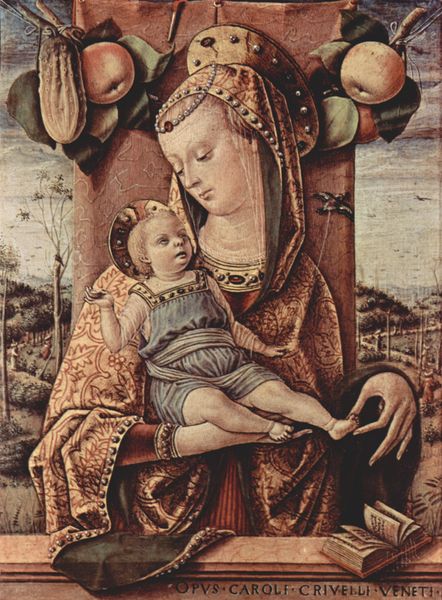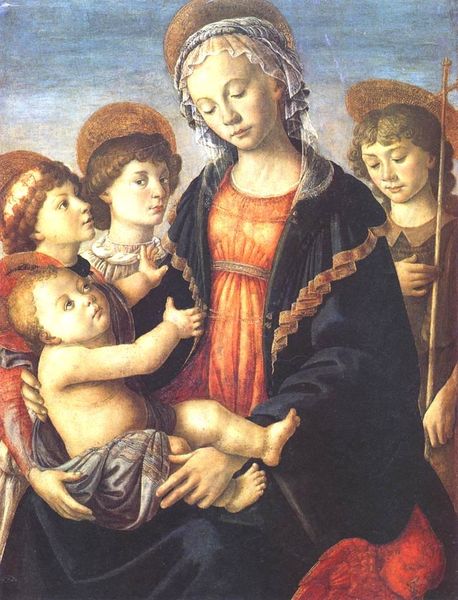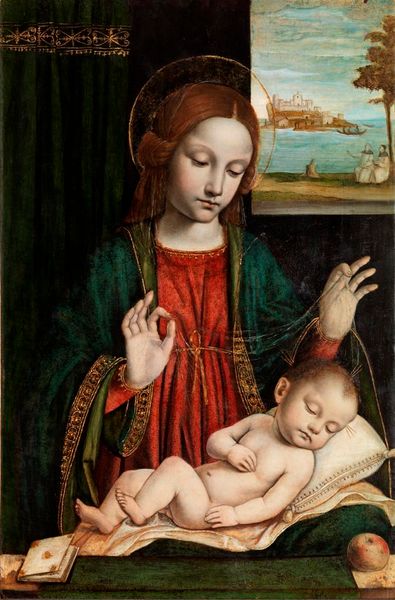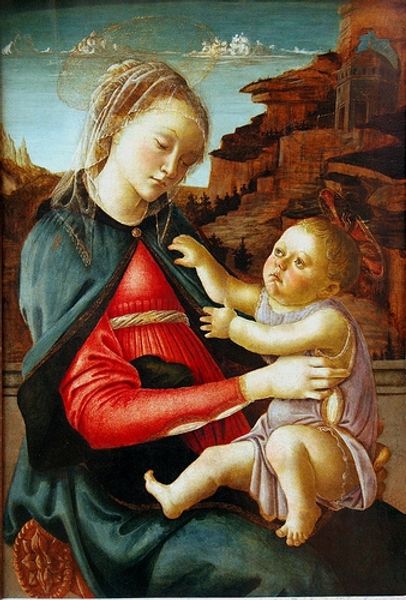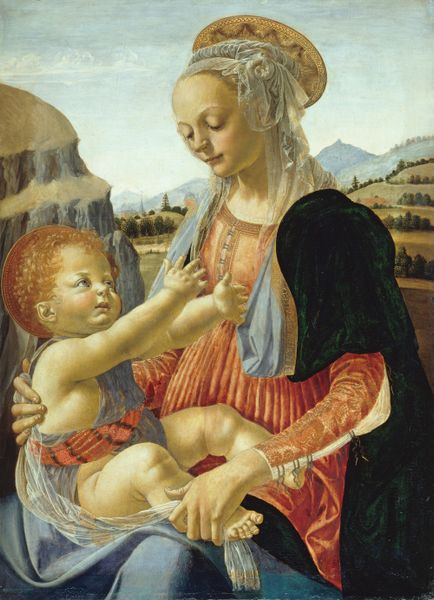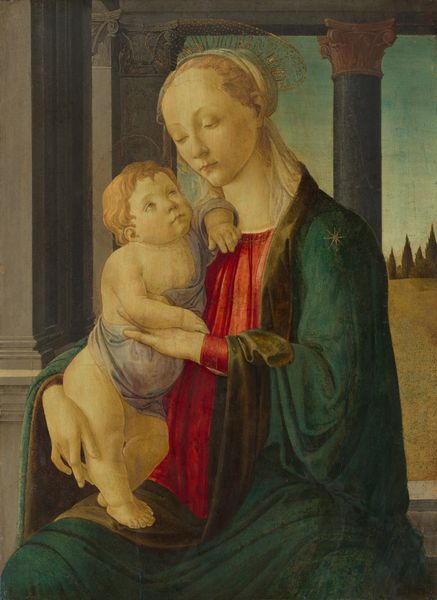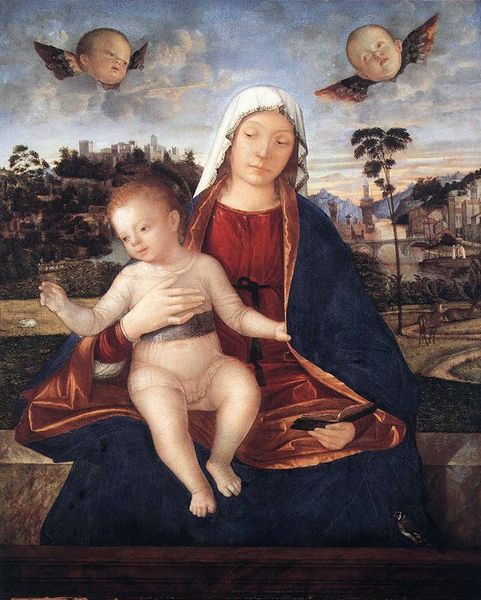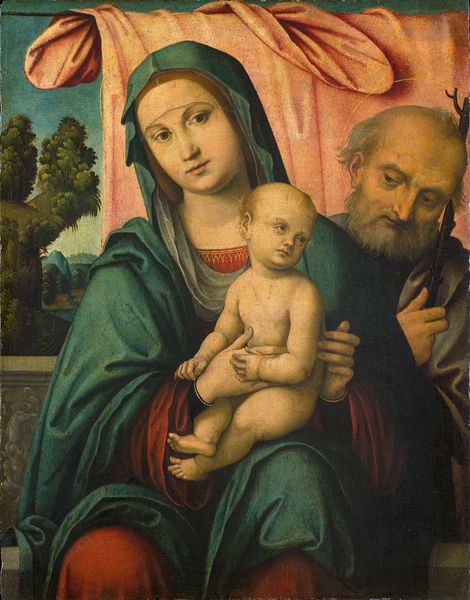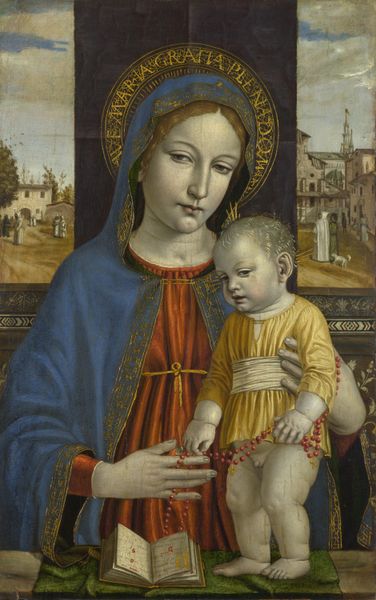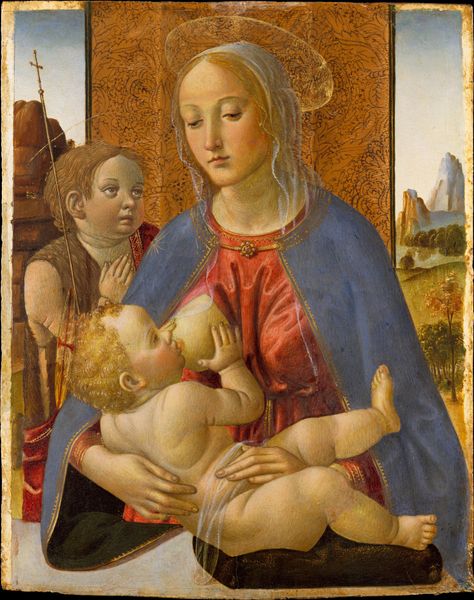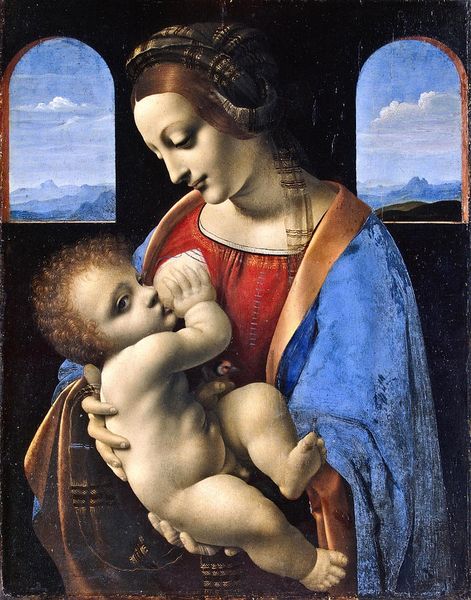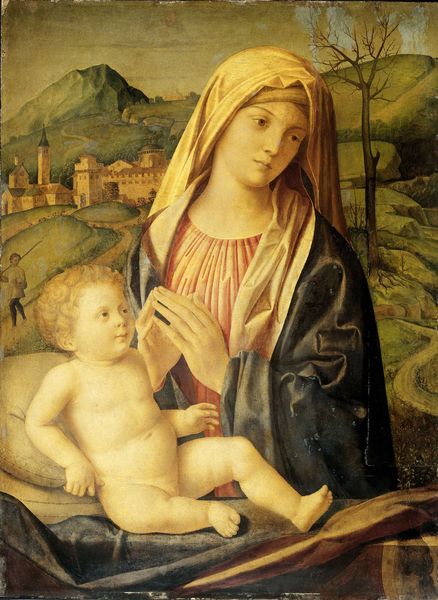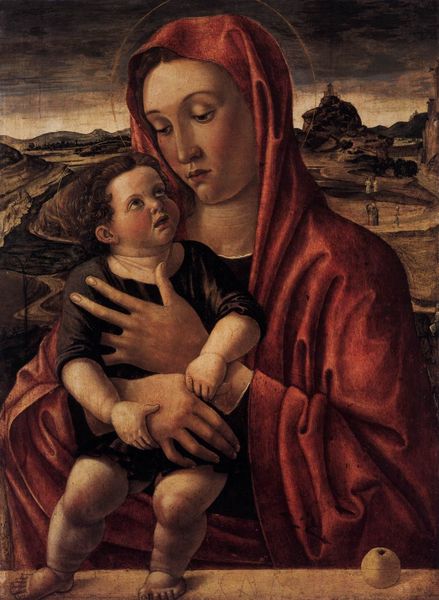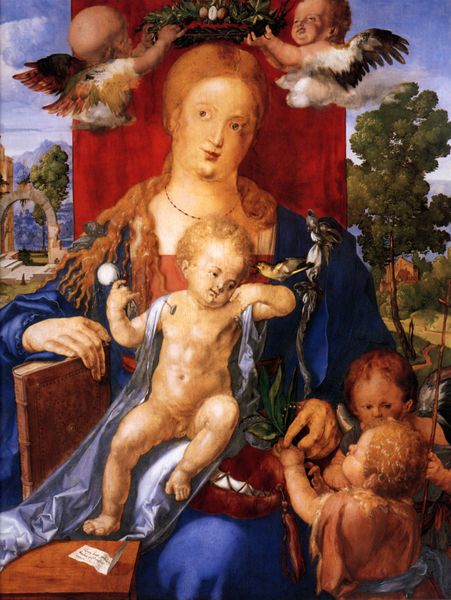
painting, oil-paint
#
portrait
#
narrative-art
#
painting
#
oil-paint
#
figuration
#
oil painting
#
classicism
#
christianity
#
history-painting
#
italian-renaissance
#
early-renaissance
#
portrait art
Dimensions: 65.5 x 52.5 cm
Copyright: Public domain
Andrea Mantegna painted this ‘Holy Family’ around the late 15th century, using tempera on canvas. Tempera isn’t like modern acrylic paint; it’s made by mixing pigment with a binding agent, often egg yolk. This gives the colors a distinctive matte finish, and requires a meticulous, layered approach. Looking closely, you can see how Mantegna built up the forms with careful brushstrokes. He paid great attention to textures: the soft folds of Mary’s veil, the intricate patterns on her sleeve, and the crinkled skin of Saint Joseph, each achieved with different applications of the tempera paint. What is interesting to me is the level of workmanship and artistry that goes into preparing tempera, and layering it to achieve such an effect. This was a highly skilled tradition, demanding years of apprenticeship and careful material sourcing. By emphasizing this aspect, we recognize that ‘fine art’ is also a kind of craft, deeply rooted in material knowledge and skilled labor.
Comments
No comments
Be the first to comment and join the conversation on the ultimate creative platform.
